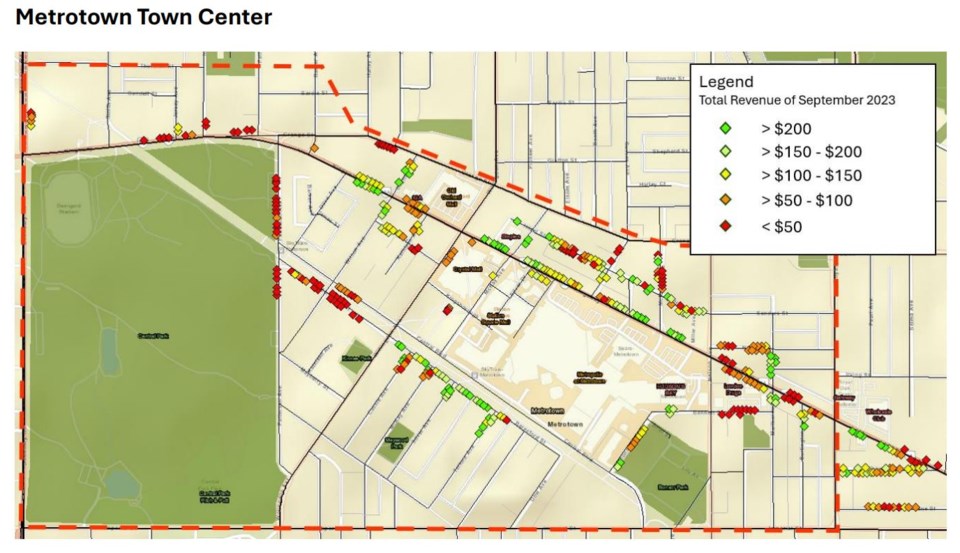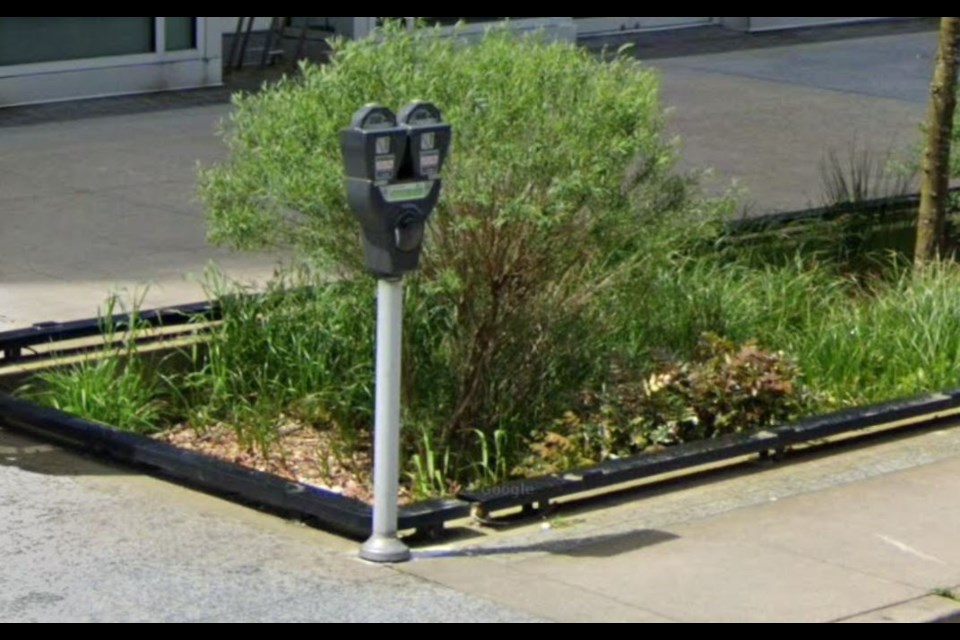The City of Burnaby will increase on-street parking fees starting in September – but only in Metrotown.
Council approved the fee hike at a meeting July 22, allowing increases of $1 for long-term parking and 50 cents per hour for short-term parking, according to a staff report.
Long-term parking in Metrotown will soon cost about $6 for 10 or 12 hours (up from $5), and short-term parking will range from about $3 to $3.50 per hour (up from $2.50 to $3).
The increase of about 18 per cent on average is within the range already allowed by city bylaws.
The new rates, which will affect about 600 on-street metres in Metrotown, will start Sept. 30, according to the report.
The last increase was in 2020.
Staff say the fee increase will generate about $150,000 in additional revenue per year. The money will go towards the costs of operating and maintaining the city’s public pay parking.

Burnaby’s parking rates are generally aligned with neighbouring municipalities, said the report, although Vancouver’s highest hourly rate tops out at $15.
Metrotown and Brentwood town centre have the highest on-street parking usage, according to city data.
Burnaby operates about 1,100 on-street pay parking metres (about 2,200 on-street parking spaces) that are mostly located in its four town centres.
Additional parking metres are around BCIT and industrial areas including Lake City and Production Way SkyTrain stations.
The most used pay parking streets (calculated by revenue generated by metres with identical rates) in Metrotown are:
- Kingsway
- Marlborough Avenue
- Beresford Street
- Silver Avenue
- Telford Avenue
- Hazel Street
- Grimmer Street
- Wilson Avenue

In Brentwood, the four most-used streets are Buchanan Street, Dawson Street, Buchanan Street and Rosser Avenue.
While certain areas in Brentwood have high street parking usage, staff didn’t recommend increasing the fee because parking spaces are still available and the “optimal parking utilization threshold for most streets has not been achieved.”
The city has also used drone surveillance to collect data on how much the street parking is used.
The city’s pay parking program goals including encouraging street parking turnover and availability to support visitors to local businesses and encouraging the use of alternative modes of transportation to reduce congestion and greenhouse gas emissions, according to the report.





